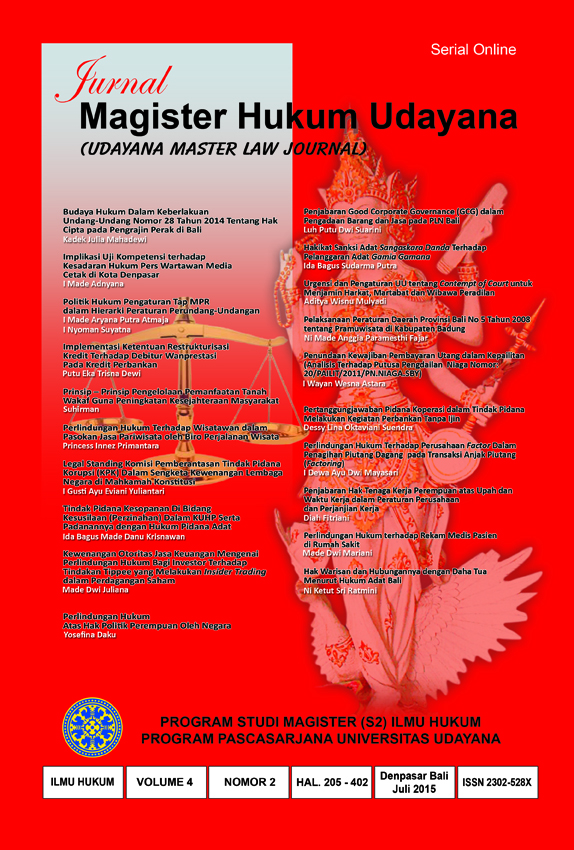HAKIKAT SANKSI ADAT SANGASKARA DANDA TERHADAP PELANGGARAN ADAT GAMIA GAMANA
Abstract
Community life in Bali is inseparable from the customs inherent in the life of society itself. Religion and culture become a crucial factor to implement the order of indigenous people. Social change has an impact on the life of indigenous people. Many custom cases that occur, one of them is having sexual relation / marriage with close relatives called Gamia Gamana. Sanctions toward this custom offense generally carry out by cleaning up the village or prayascita village. The purpose of this ceremony is to restore the sanctity and balance of the village; therefore, it becomes pure again. This sanction is given as a fine to the person who does custom offense called Sangaskara Danda.
The research questions of this study can be formulated as follows; how is the nature of Sangaskara Danda? And how is the implementation of Sangaskara Danda sanction toward customs offenses Gamia Gamana? The method used in this study was an empirical law derived from primary data and secondary data. The nature of this study was descriptive, with qualitative data analysis. Overall results of these analyses were presented in the description which described the complete problem under study along with a critical discussion.
The nature of custom sanction Sangaskara Danda can be seen from the form of sanction, the purpose of the sanction, and the implementation of the sanction. The sanction Sangaskara Danda is in the form of Prayascita Sangaskara Danda and Matirta Gamana (for Hindu Priest). The purpose of this sanction is restoring the cosmic balance (sekala-niskala); moreover, cleansing and purifying themselves, their family and village environment. The implementation of these sanctions is done by imposing the perpetrator of custom offenses either in material or immaterial. Similarly, in implementing sanction Sangaskara Danda toward custom offenses Gamia Gamana is to continue to implement Sangaskara Danda in the form of Prayascita Desa and impose other sanction such as not allowed joining as the member of the village, pay fines, bathed in the sea or even “diaben” (symbolically).Downloads
Keywords
Jurnal Magister Hukum Udayana (Udayana Master Law of Journal) by Faculty of Law Udayana University is licensed under a Creative Commons Attribution-NonCommercial 4.0 International License.



















